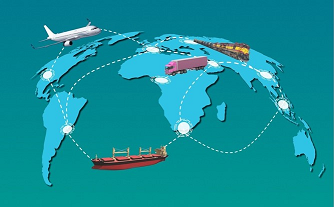
The global food supply chain has
started 2024 with a fresh set of challenges. Ongoing attacks on
shipping vessels by Houthi rebels in the Red Sea have forced carriers to avoid
the passage, putting further strain on supply chains that are already reeling
from the war in Ukraine, where attacks in key wheat-producing regions have increased
prices and created shortages of staple products like bread and pasta.
Meanwhile, adverse weather events
across the globe, including heatwaves and wildfires in countries including
Italy, Chile and Colombia, have led to substantial agricultural damage,
further straining food production and availability. India, once a significant
wheat exporter, is facing a drought that has depleted its wheat reserves,
pushing the country to seriously consider wheat imports to stabilize domestic
supply and prices, and an El Niño pattern has curbed crop production across
Asia, a major producer of rice, wheat and palm oil. Amid these disruptions,
costs have surged dramatically for commodities including grain, sunflower oil
and coffee.
Instability is becoming the new norm
in the global food supply chain, a reality that underscores the urgent need for
a more agile and resilient approach to supply chain management. To
mitigate these risks, companies need to diversify their sourcing and logistics
strategies, reducing dependence on volatile regions. Digital supply chain
solutions, such as real-time tracking and predictive analytics, have become
essential for proactive risk management. These technologies enable companies to
anticipate disruptions and reconfigure their supply chains dynamically,
enhancing transparency and resilience in their operations. Additionally,
building stronger relationships with a diverse range of suppliers and logistics
partners can provide alternative options when usual channels are disrupted.
The right platform can enable
companies to quickly adapt to changing circumstances, such as finding
alternative suppliers or rerouting shipments in response to geopolitical
sanctions or natural disasters. These capabilities are important
for all businesses, but given the delicate nature of the global food supply
chain, having a centralized system like this to provide complete, real-time
information is even more critical for food and beverage retailers…A multi-enterprise platform like
TradeBeyond acts as a control tower, providing supply chain managers with
real-time insights and analytics that empower them to understand, assess, and
respond swiftly to any disruption and limit its impact. In addition to gearing up to make
the supply chain more resilient and agile, retailers and brands must also
consider the evolving consumer expectations around sustainability and ethical
sourcing. Consumers are increasingly aware of and concerned about the
environmental impact of their food choices. Also, regulatory changes aimed at
both food safety and environmental impact are demanding increased vigilance and
adaptability from companies. For instance, the EU's new deforestation
regulation requires companies to prove that commodities like coffee, palm oil
and cocoa are not linked to deforestation. These changing consumer preferences
and regulations have introduced additional complexity to supply chains,
necessitating that food and beverage retailers invest in robust traceability
solutions. This heightened focus on sustainability is particularly
consequential for food and beverage retailers, where confirming the Nth-tier
origins of ingredients like spices is especially demanding. Any required changes, such as addressing
deforestation, reducing carbon footprint or complying with regulations concerning
specific regions like China’s Uygur region, necessitate a thorough validation
of all downstream suppliers. Efficient digital tools are required to
conduct all necessary audits and certifications to ensure a company’s standards
of social and environmental sustainability are met at every stage in the supply
chain. TradeBeyond’s traceability tools
allow businesses to map their supply chains down to the Nth-tier and track and
document chain of custody, ensuring compliance with global ESG laws and consumer
expectations. Moreover, TradeBeyond's comprehensive approach to supply
chain management helps companies maintain quality and sustainability standards
even amid rapid market changes and supply chain disruptions.
If the disruptions of the last few years have taught supply
chain managers anything, it’s to expect the unexpected…
KEYWORDS: data analysis prediction shortages Supply Chain